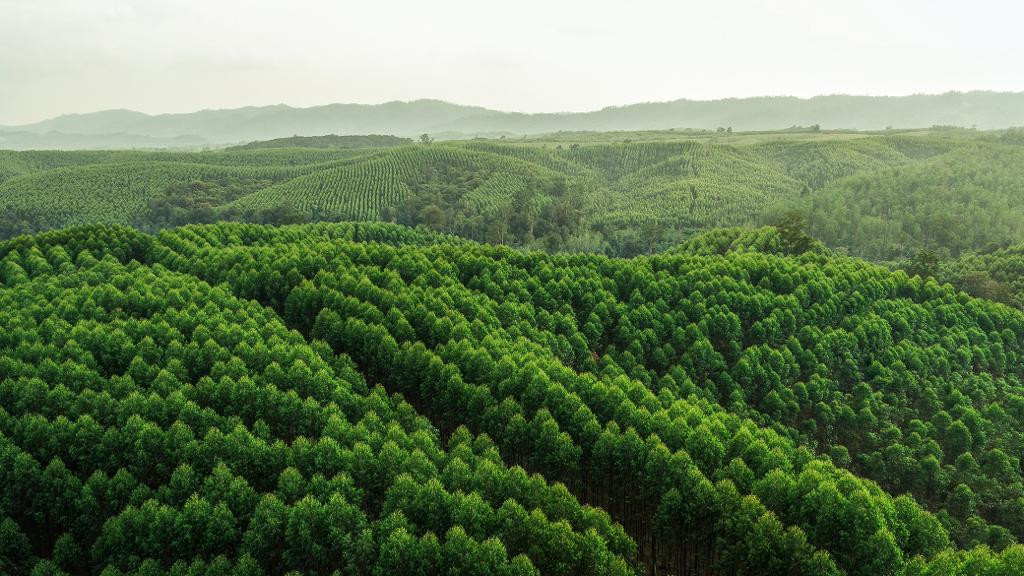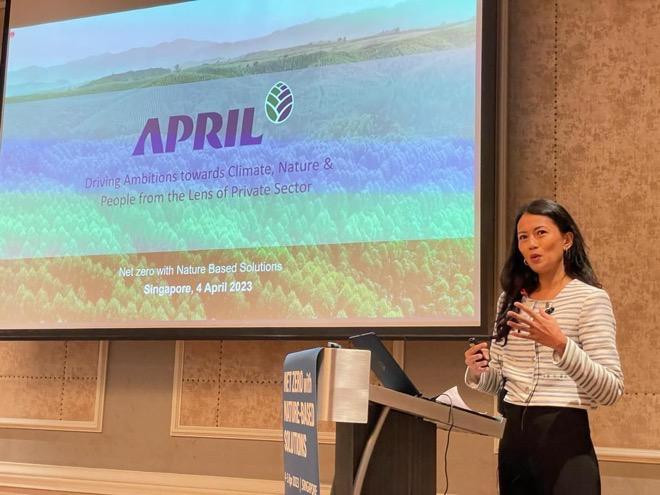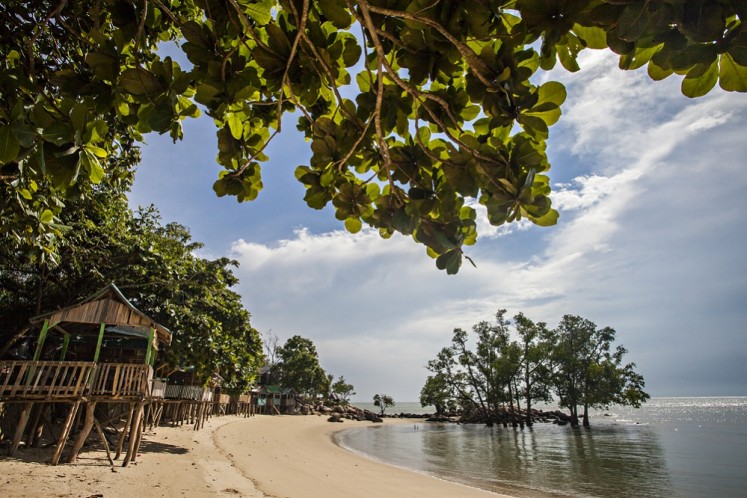Popular Reads
Top Results
Can't find what you're looking for?
View all search resultsPopular Reads
Top Results
Can't find what you're looking for?
View all search resultsCultivating Lasting Positive Impact : APRIL’s Investment in Nature-based Solutions
Nature-Based Solutions (NbS) have emerged as a critical approach to simultaneously addressing climate change, protecting ecosystems, preventing biodiversity loss, and supporting livelihoods. NbS encompasses a range of measures such as protection and restoration of forests and other natural ecosystems and improved management of productive lands.
Change text size
Gift Premium Articles
to Anyone
N
ature-Based Solutions (NbS) have emerged as a critical approach to simultaneously addressing climate change, protecting ecosystems, preventing biodiversity loss, and supporting livelihoods. NbS encompasses a range of measures such as protection and restoration of forests and other natural ecosystems and improved management of productive lands.
However, implementing NbS requires increased funding, technical support, and collaboration between governments, private sectors, and communities. Indonesia, with its rich biodiversity and natural resources, is well-positioned to play a leadership role and benefit from NbS initiatives.
At a recent Net-Zero with Nature-based Solutions conference organized by CMT, Nadine Zamira Syarief, Sustainability and ESG Manager APRIL Group, highlighted how APRIL Group is investing in NbS initiatives to deliver lasting and positive impacts on climate, nature, and people in line with its APRIL2030 commitments and targets.
Nadine emphasized the importance of grounding NbS initiatives in credible and context-relevant science to inform the best management interventions and align them with broader business strategies. APRIL Group has invested in four greenhouse gas (GHG) monitoring towers and equipment to fully understand the emissions dynamics across different land use types that APRIL manages, and enabling the company to contribute to national and global scientific knowledge. Since investing in the first towers in 2016, APRIL’s scientists have been working alongside the broader scientific community to publish peer-reviewed studies on tropical peatland ecosystems based on the data collected.
In addition to its scientific contributions, APRIL Group has also undertaken various conservation and restoration efforts that contribute to its mitigation efforts. Its flagship NbS initiative, the Restorasi Ekosistem Riau (RER), is an ecosystem restoration project covering over 150,000 ha of the Kampar Peninsula in Indonesia that was initiated in 2013. The RER project aims to restore degraded peatland forests and protect biodiversity, while also providing benefits to local communities such as livelihood opportunities. APRIL Group’s steadfast commitment to conservation and restoration is backed by a conservation fund financed by applying a USD$1 allocation for every ton of wood harvested.
"From our experience, it is important to ground nature-based solutions on credible science, work with local communities and position them both as beneficiaries and actors, and linking these solutions to the business arm to ensure long-term financing and its sustainability,” said Nadine during the event.
Nadine also discussed APRIL's commitment to responsible land management, particularly in preventing and mitigating fires beyond its own operations. The company's Fire Free Village program addresses fire risks in the broader landscape and works to prevent fires through community engagement, providing agribusiness programs, operational support, and knowledge transfer about fire prevention.
Since the program's inception in 2015, there has been up to a 90 percent reduction in burnt land area in the villages where interventions have occurred thus avoiding millions of tons of carbon being released into the atmosphere. Moreover, APRIL has been building relationships with communities through the Fire Free Village program, and these relationships have evolved to include community conservation programs. The program helps communities keep standing natural forests in their villages and employs a similar engagement model to that of the Fire Free Village program.
With its commitment to responsible land management, protection and restoration, APRIL Group is taking important steps toward achieving its sustainability goals while making a positive impact on the environment and local communities.
Representatives from PEFC International, Sime Darby, Asian Development Bank (ADB), Tata Steel and Natura & Co were also at the panel session, where they shared and discussed their approach to Nature-Based Solutions.
Separately on a the same event, Addriyanus Tantra, SFM Certification and Compliance Manager, Sustainability Operations at APRIL emphasized that sustainable forest management has been an integral part of APRIL’s business operation, which are guided by Sustainable Forest Management Policy 2.0 with a set of ambitious targets for APRIL2030.
Collaboration with multiple stakeholders is key factor in achieving sustainable forest management practices and initiatives. However, among all the stakeholders, the community living within the boundaries of operations is the most significant to be more inclusive thus close engagement is a priority for a more effective and successful outcome for all stakeholders involved, Addriyanus said. .
“Sustainable forest management allows us to protect and produce from the same landscape. And our experience shows that we can’t do it alone. We need to collaborate with other stakeholders, and the most important stakeholder of all is the local community, “ said Addriyanus, summing up his presentations.
This article was published in collaboration with APRIL Group.










